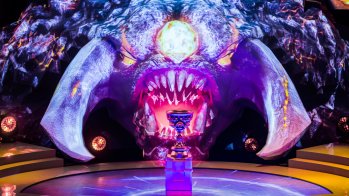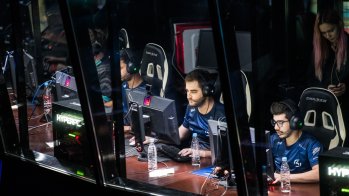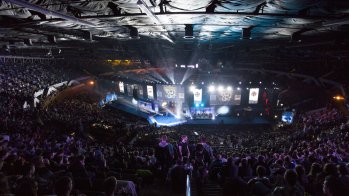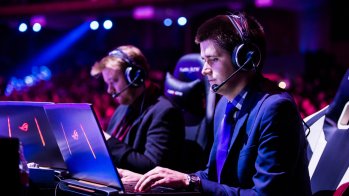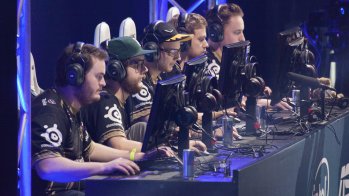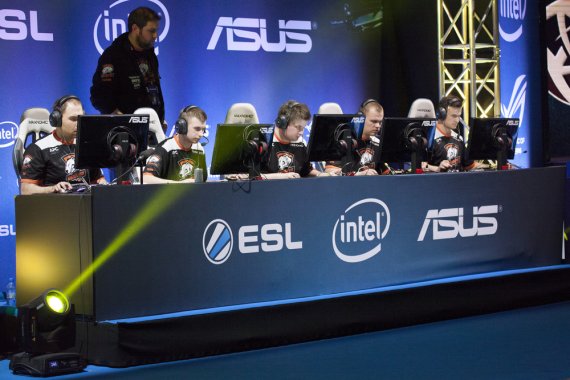
The origins of the ESL can be found in the various clans that were founded in the course of growing LAN tournaments. With increasing sources of income, caused by higher prize money as well as sponsorship contracts, and the associated possibility to pay salaries, the structure of some teams became more and more professional.
A large number of these clans from Germany organized themselves in 1997 in the "German Clan League" founded by Ralf Reichert. Towards the end of the 90's, the first professional teams were founded - for example:
- SK Gaming (1997)
- mTw (1998)
- n!faculty (1999)
In the beginnings, the focus of these clans was usually set on just one game. SK Gaming earned its first laurels as a Counterstrike-Team, as did mTw. In contrast, n!faculty attracted attention as a successful Quake clan. By the way, Reichert and his brothers were also founding members of the SK Gaming team.
However, a major problem remained despite the creation of DeCL: in the different leagues and tournaments in Germany as well as in Europe different rules still applied. But soon something new and much bigger should develop from this clan league...
Three years later, in 2000, Stefan Reichert founded Turtle Entertainment GmbH in Cologne with some like-minded people. Already at that time, they knew that eSports had a huge potential. The advantage for those involved was that they had a treasure trove of experience in the field of eSports at the time of foundation.
Their master plan was to establish a league system that not only included various game titles, but also considered the most diverse game modes. Therefore, Turtle Entertainment GmbH founded the Electronic Sports League (ESPL) and soon changed its name to ESL.
In the following years, the company gradually began to expand its market position. On the one hand, by expanding the supported games with the simultaneous expansion of a corresponding league and ranking list system - the latter is also called the ladder system in eSports. On the other hand, by buying up possible other portals or by cooperating with potent partners.
Thus, Turtle Entertainment acquired the competition GIGA League, which also came from Germany, and integrated it into its own league system. In addition, in 2007 the online league ProGamer League (PGL) in China was found as an important partner for the Asian market, which should further increase the level of awareness of the ESL. Another important main pillar was the license business with European partners who were to create their own "Landesliga" in the name of ESL. The league thus managed to be represented in over 20 European countries.
In the course of time and with the growing sales of consoles, these also became interesting again for the eSports market, so that from 2006 the CSL (Consoles Sports League) was established. It offers a tight and professionally organized league system, too, that supports various games.

In 2015, a number of formal changes took place for Turtle Entertainment GmbH, as 74 percent of the company's shares were sold to the Modern Times Group on July 1st. The listed company from Stockholm paid a whopping 78 million euros.
Today, the ESL is one of the largest and most important eSports leagues worldwide and the most important eSports representative in Europe. It has offices around the world, employing around 500 people. More than one million gamers and over 400,000 clans are organized in their leagues.
Among others, the most important tournaments or leagues organized by the ESL are:
- ESL Championship in Germany
- ESL Pro League (EPL)
- Intel Extreme Masters
The ESL Pro-Series can be seen as a national Bundesliga because only the best gamers qualify for it. Three games are currently being played: CS:GO, League of Legends and - most recently - Playerunknown's Battleground. Since 2012, the titles have been awarded three times a year (spring, summer and winter) among the best players.
The highest international league is the ESL Pro League (EPL), which is currently played in seven games: CS:GO, Ge7ars of War, Guild Wars 2, Halo 5: Guardians, Hearthstone: Heroes of Warcraft, Mortal Kombat X, and Tom Clancy's Rainbow Six Victories. Here 12 teams from Europe and America, which were determined before in national elimination fights, compete against each other, in order to determine the champion.
The ESL Intel Extreme Masters (IEM) is a tournament series that was first played in 2007. On the way to the final, tournaments must be played in several international cities. The final event will be the "World Championship", which has been held in Katowice, Poland, since 2014. Participants will be determined either in online qualifiers or through the ESL Championship.
The ESL has played a major role in making cyber sports one of the most important new sports in the world. Because hardly any other sport inspires so many people. Today, the Electronic Sports League has over 8 million members and fills entire stadiums. The resulting cooperation with DHL, Warsteiner, Wüstenrot, Vodafone or McDonalds proves that many important companies are already investing in eSports and would like to position themselves more in this area in the future.
Sport of the future: eSports in pictures
- Awards
- Mountain sports
- Bike
- Fitness
- Health
- ISPO Munich
- Running
- Brands
- Sustainability
- Olympia
- OutDoor
- Promotion
- Sports Business
- Textrends
- Triathlon
- Water sports
- Winter sports
- eSports
- SportsTech
- OutDoor by ISPO
- Heroes
- Transformation
- Sport Fashion
- Urban Culture
- Challenges of a CEO
- Trade fairs
- Sports
- Find the Balance
- Product reviews
- Newsletter Exclusive Area
- Magazine



